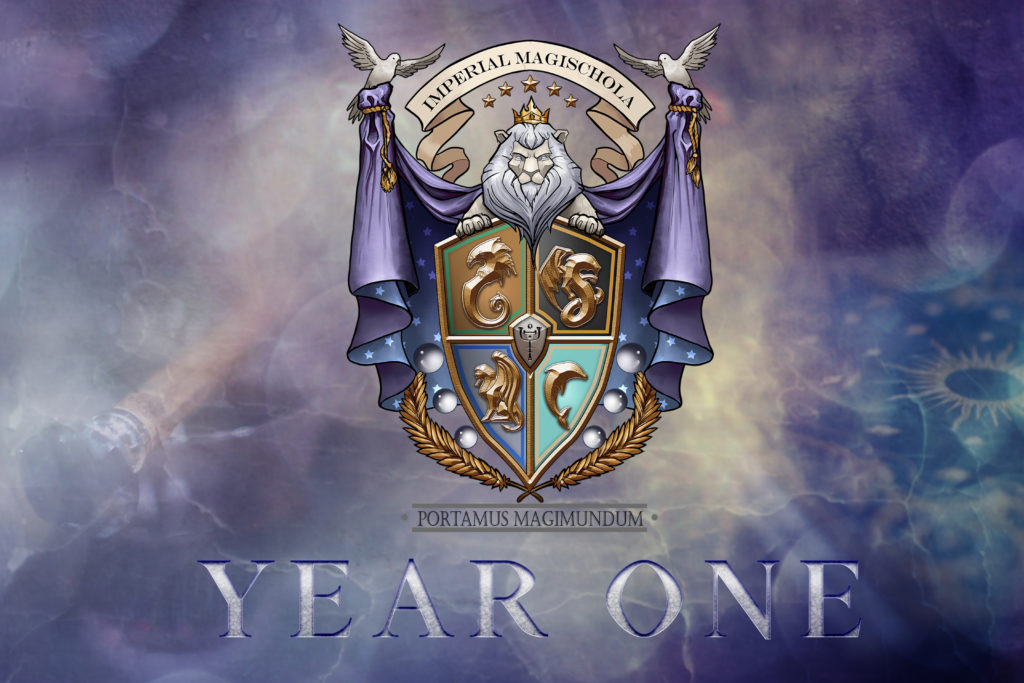
Written By: Tara M. Clapper
Content warning: Discussion of verbal and emotional abuse and representation of systemic oppression and fascism
It’s never taken me an entire month to debrief and recap a LARP before. Imperial Magischola (September, 2019) took that long. Created and produced by Learn Larp Studios, Imperial Magischola provided players the opportunity to take on the roles of more privileged students in the magical world. Most participants were familiar with the magical world (the Magimundi) from New World Magischola and related LARPs.
This LARP was different.
This LARP was more intense and unabashedly exploratory, not just in content, but in reach. It embraced me, it rattled me, it challenged me, and pushed me through the other side as a changed person.
This was the most rewarding larp I have ever played, but it was not an easy experience.
Imperial Magischola was meant to provide players with an experience to examine themes such as privilege, tradition, power, marginalization, catalysts for activism, the marginalizing nature of even the best-intended change, and peace versus violence.
My deconstruction and analysis is not meant to convey the experiences of all participants and their marginalizations or privileges, or any participants other than me. I encourage you to look for the opinions of other participants and listen to what they have to say. That explained, I promise to provide a vulnerable and intimate look into my time at Imperial.
Imperial Magischola Design
This LARP included 43 players total, which included 7 faculty members/headmistress. There were 9 staff members. Matt Norris and Brittany Viens were the photographers.
Each student participated (could opt-in to) a court, a chamber, and one or more other clubs and activities. My character was involved in Agrippa Court, Chamber of Sanctity, Dueling Club, and a secret society called Veil of Shadows. These various organizations provided multiple layers of engagement over the course of the weekend, allowing thematic emergence to occur naturally throughout my experience.
While this is typically a beneficial design, it was especially impactful due to the support and lift it provided with the heavy themes of privilege and other weighty subject matter. I didn’t intend to exist in some kind of echo chamber, but as a representative of the elite, my character did.
My Characters: The Clueless Student and the Romantic Hero
I played Claire Dupont, a first year student. Claire was inhabited and possessed consensually by her ancestor, Cecelia Dupont, a young marshal (wizard cop) who had earned a glorious death defending her own sister from a Gorecaster (wizard out to cause mayhem). Cecelia hadn’t gotten to live much of her life. In the present, she described the 1930s, the decade in which she died, with a romantic and elegant wistfulness, but one also laced with tales of the war effort, and what the rich had (and hadn’t) done to support it.
Learn Larp provided me with a character based upon my character survey responses. I’d been given a first initial. I initially chose “Claire” to echo the (often mis-romanticized) time-traveling adventures of the character (a reference to the protagonist of “Outlander”), and Cecelia to represent my grandmother, Helen Cecelia, who had been born in 1933.
I had been close with my grandmother, and after exploring my grandfather’s death at the first run of New World Magischola, I knew I was ready to get a more personal view of my grandmother by playing Cecelia. Like my grandmother, Cecelia sometimes saw the past through rose-colored glasses; she was sincere and romantic and committed to progressive thinking while still retaining traditions and continuing them for the sake of family.
Claire still has a long way to go. I’ll be able to explore that in the second and third arcs of the Imperial story, as Learn Larp initially announced a strong three-even run for this larp. This has helped me steer and explore directions and closure not just for Claire, but Cecelia as well.
What I Discovered About Myself
Like this character, I have two sides to myself. There’s a strong, badass side constantly praised by my peers. I’ve gotten through a lot, and I find it natural to encourage and mentor others in our community, especially other women. I’ve played many Star Wars Leia-type princess-to-general characters in my 13 years of LARPing, and find that arc very fulfilling.
This time I took it a step further because the character demanded it, the trust among the other players was there, and the story deserved to be honored.
Separating this badassery as a literal second character, I was able to begin to look at Claire, the primary character. Generally a decent person who respects her family, Claire trusts spirits to use (and abuse) her. While it was important to me that the primary possession (Cecelia) was consensual, by the end of the LARP, Claire was embracing her gifts as a medium and receiving other spirits, trusting whatever wandered by and needed a host. Following a scene negotiation, she let herself be inhabited by her friend’s dead sister—and possibly whatever was torturing this spirit’s soul.
Needless to say, untrained, this compassion, empathy, and desire to help is frequently twisted and manipulated in world growing closer to tumult and turmoil. In need of guidance, Claire turned not towards the mentor who would have enough personal honor to truly help her survive, but to a figure later revealed to be a villain.
Looking back on it, due to the below described blackbox scenarios, I think I did pick up on the fact that this villain was a villain, and allowed my character to choose a mentor who would manipulate her. This character was obsequiously encouraging, carried an air of complete eliteness, and made you want to feel part of his club. He talked freely about sex and liberation of the magical mind while presumably keeping the mysteries of the universe close to himself.
Blackbox Scenario
Prior to Imperial Magischola, I had always been skeptical about blackbox scenarios. While I enjoy supporting others’ play, I find that it often breaks immersion to suddenly play another character in their backstory, as is often requested in blackbox scenes.
At Imperial, the blackbox was part of the larp itself, positioned as the “Arca Tenebrarum.” This magical device/space could be reserved for characters to explore past memories and more. While the scenes and emotions I experienced in the blackbox are too personal to describe in detail, I will say that I participated in three very different Arca sessions.
The first focused on some past near-romantic encounters between Cecelia and another character, who was also present in the current story/setting (wizards in this setting live much longer than non-magical humans, after all). These emotional encounters succeeded primarily due to planning, player trust, and leaving enough of the details open so we could add in details and clues affecting the current story.
My second Arca experience entirely involved supporting another player. This player and another trusted friend enacted some emotional experiences involving verbal abuse, something we were all familiar with as survivors. In this experience, I portrayed an abusive man. I recognized, mentally listed, and enacted all the stages of gaslighting and abuse I had experienced in various troubled relationships, and I did it in under five minutes. This changed me, and ever since, my tolerance for this behavior is much lower, and having inhabited the role of the abuser, I find that the language and tactics abusers and manipulators use are increasingly easier to spot.
The third scene involved the aforementioned villain forcibly separating my two characters. He’d suspected something was up, and when Cecelia wouldn’t confess, he split them apart. (We had negotiated this scene prior to the LARP, then checked in again during the LARP.) This forced a character development I wanted, but also allowed me to see that my characters responded to this in different ways:
- My badass side, Cecelia, knew that this was wrong and wanted to fight the villain-to-be.
- My innocent side, Claire, felt that she owed him for liberating her from her familial obligations of hosting Cecelia. Her development and sense of self is now tied to his guidance.
This close-hand look at manipulative and abusive behavior from an actual villain in play has made me see how certain aspects of myself will ignore red flags in real life and in real relationships, but that I need to listen to my badass side—more connected to instinct and immediate action—when it comes to denying this type of person from using me.
“How Could They Forget Our Past?”
One of the most heartbreaking things about playing Cecelia was the realization that many of the other characters were not engaged with or informed about critical matters from the recent past. An obvious reflection on current society and affairs, I’m still having trouble grappling with that. Cecelia felt crazy—she’d died at the hands of those who were essentially wizard fascists, and the current Imperial students didn’t even know what these Gorecasters really were.
Learn Larp’s Magimundi (magical world which includes both New World Magischola and Imperial Magischola) had always included Jack Slager and his Gorecasters. Throughout the years, Learn Larp and its community have calibrated to including and excluding Slager-related content depending on comfort levels and the tone of each event. I am a player who always wanted to confront this boogeyman in game, and have wanted to do so as several characters in this world. None of them want a shot at him and his henchpeople more than Cecelia.
In this setting, it was permissible to include Gorecasters as analogs for the fascism currently present; of course, the Gorecaster Crisis in the world setting took place in the 1930s, so the Nazi comparison is apt, but one a bit scary to touch.
Considering what is going on in the real world, it became time for that risk.
In real life, I had a privileged preparatory school education and was taught not to forget things. While I never suffered as a child and carried many privileges, my aforementioned grandmother stressed the struggles of our Irish-American heritage. During Grandparents’ Day as a child, I met Holocaust survivors. Now as an adult, I have encountered people who profess that the Holocaust wasn’t real, and others that don’t know anything about it.
As Cecelia, I was confronted with a student population that didn’t care to learn about the dangers of fascism that plagued their grandparents and parents, and now threatened them. They were ignorant because their own privileges made them feel safe, like it wouldn’t affect them, yet Cecelia had experienced how it would. It was a very helpless feeling and one difficult to avoid internalizing as a player. When I read the news or encounter Holocaust deniers today, or other white people who deny that racism is a systemic problem, I feel that grief. It relates back to the gaslighting I explored at this LARP, too—to say I was there and experienced something, as this character, and to have others not know, not care, or even say it didn’t happen—this was a hurtful experience in the LARP’s fictional world, and only a fraction of what this must feel like for people in real life.
While I cannot and will not equate my LARP experiences with the real suffering of marginalized people and my own ancestors, I feel that I can no longer “turn off” the privilege of being unaffected by it. This has led to a more difficult time coping with world events, but a more realistic one.
Heritage is important to me in real life, and it is in the Magimundi, too, both as a player and these characters. I’ve been relatively present in Learn Larp’s word since the first Magischola LARP. This world is a daily part of my life that has helped me learn, grow, and connect with others in ways that have helped me survive different times, often through the kindness and support of people I’ve met in this community. I’m particularly invested in much of the lore that impacts Imperial, not just as my character, but as a player, and I’ve done my best to remain cognizant of that bleed. This has also helped me analyze and internalize my experience.
Choosing a Table
At various points in the story, our characters had to make choices relating to the rights of mundane-born wizards and whether we stood with the traditional ways of their Unsoiled (having four mage or wizard grandparents) families. While there were a few mundane born and mixed heritage characters present, most of the characters were Unsoiled.
By signing up for this LARP, it was clear that I was in for:
- A LARP in which it was permissible to explore my shadow self, related themes, and elements of the LARP world not always permitted in play;
- Design with social justice as a fundamental component
- An experience focusing on safety, trust, and intimacy.
No amount of material in the world could have prepared me to actually experience some of the themes we explored in the LARP. Beyond what I’ve described above, others experienced and discussed a “mundane party” in which participants were asked to dress like they think mundane (non-magical people) do. Some did not realize it was a blackface party analog; others did, and played the party anyway.
With this and other story elements, the level of telegraphing and communicating to the staff players seemed a lot clearer than what the players of some students (and some faculty) received. Following the LARP, there were a lot of strong feelings expressed about this party and other components of the LARP. I’m not sure how much of this was intentional in design, but it created some (hopefully temporary) distrust in the community.
I believe all the discomfort experienced by privileged people including myself was intentional, and deserved.
At one point during the LARP, our characters had to choose which table to sit at. One dining room had traditionalists, the others had progressives. The rooms names themselves were even relabeled, as “anti-mundane” and “mundane rights” seemed too harsh for people, in and out of game. I’m still not sure how I feel about that or whether it’s right to ask or expect the few players of color present to make that call. I feel that it is also important to note that there were few LARPers of color at the event, particularly black LARPers.
As a racially privileged (white) LARPer, it was difficult for me to cope with memories of the LARP and some of the themes I played, observed, or heard about. I’m not sure if or how players of any background could be prepared for processing this type of information given the complex history of racism and other prejudice in the United States. Generally, white LARPers need to experience the shock, but our community should seek more ways to support the LARPers of color present, and to consider the various intersectionalities that make these topics complex to dissect.
It was clear in the character selection process that the mundane-born characters would be subject to a certain amount of bullying, so this element of interaction was less of a surprise.
Steering the Story
Going into the second year of Imperial in September, 2020, I have a clearer expectation on what type of story and themes I will be playing.
In addition to some of the themes being clearer than others, I also wasn’t ready for the shift in larp structure (versus New World Magischola). This structure included:
- A more modular structure, with Saturday night content featuring a puzzle/knowledge-based module similar to things I’ve seen and written for American boffer combat LARPs.
- A “freeze” mechanic and overall design structure leaning slightly more towards the “secrets” side of the “secrets and powers” LARP design style, inherently similar to Armistice Arcane.
- More structured out of game negotiations for intense and impactful large scenes (this felt safe, and I enjoyed it).
- Themes that would have felt more natural to play around if we had known some specifics out of game.
- A “big reveal” uncharacteristic of previous Learn Larp games.
- A deliberate design decision to prevent closure at the end of the LARP.
While most of these elements worked well in the design, it was unsettling not knowing all of them were coming, particularly while playing with sensitive themes. This resulted in a bit of “staff vs. player” mentality following the LARP, where some participants who had more information about the structure and themes expressed that it was ridiculous that the players needed to be spoon-fed this information.
As a player, I had immense agency over my characters’ personal stories. As Cecelia, I was able to explore and resolve a time-crossed romance (a favorite thing for me to play!); as Claire, I was able to embrace emergent play and play to lift by hosting spirits, as requested by other players. I enjoyed having player agency with this medium role, while simultaneously portraying a character who has no agency over her mediumship. The scene negotiation and high level of player agency makes the theme of “being used and abused” safer and more accessible for me in the context of this LARPand community.
Debriefing in Private
Like most LARPs dealing with heavy content, Imperial Magischola had a debrief session on Sunday morning and early afternoon, prior to dismissal. The debriefing is opt-in, and I found debriefing with my character’s court (house) most useful.
More than that, it was a starting point for further discussion and private debriefing. I’m used to getting a lot done, emotionally, in debriefs, but I think most of us were still just beginning to process the LARP. It took me three months to complete this personal overview of Imperial Magischola, in large part because the experience was very impactful on my life in many ways I didn’t even begin to mention here. The impact wasn’t comfortable, but it was necessary.
For future runs of Imperial and for LARPs banking on emotional content in general, I recommend a short, optional debrief workbook for players to use in the month following the LARP, with plenty of space for journaling. Some LARPers will likely want to complete it in private, while others will want to do so in a group discussion setting, or a mix of the two. A LARP isn’t responsible for emotional aftercare a month after the event, but I do think the organizers should provide some structure for self-initiated solo or group aftercare, as well as mental health resources.
One difference I noted between this and most other LARPs I’ve played: how much of the debriefing happened one-on-one and in small groups, and how some participants assumed (and criticized others for) not discussing or processing certain themes or aspects of the event that they were very much processing privately, often with others who shared their privilege.
While I am generally open with my processing, this one felt different. You’ll notice that I didn’t go into every detail of this LARP, especially if you’ve read other things about it.
Imperial Magischola: Resonating Impact
This LARP provided me with strong connections to other players in the community. It deepened some friendships I already had—I could not and would not have played out those blackbox scenarios with anyone other than the participants there.
As a designer, this LARP has inspired me to provide modules and opt-in structure to my freeform LARPs, and has caused me to consider designing this way for scale. The somewhat intimate 50-ish participant size with one organizer, staff, or faculty member for every 8-ish student characters seemed ideal to keep all participants engaged.
The design, at least for me and my own experiences, was risky but overall responsible. Due to the event structure, certain story elements, length of the LARP, and immersive story and venue, this LARP felt like several weeks condensed into just a few days.
I would not recommend viewing this LARP as leisure or vacation, but it can be a cathartic and exploratory experience. Imperial Magischola involves trust, self-honesty, moderate preparation, and time and space to debrief alone and with others.

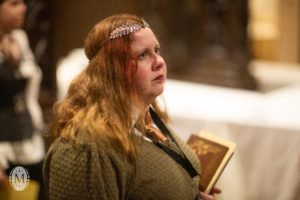
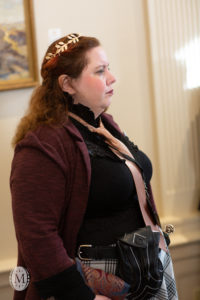
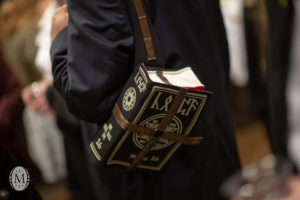
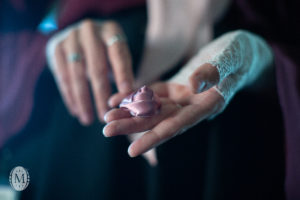
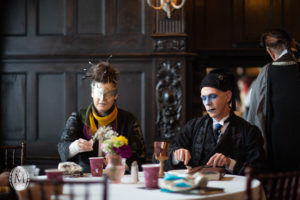
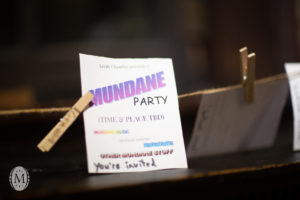
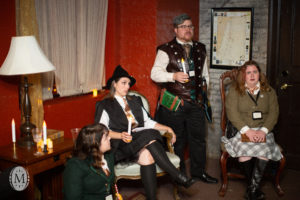
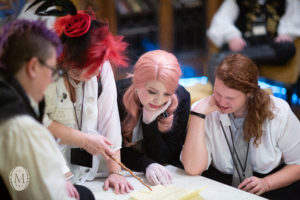
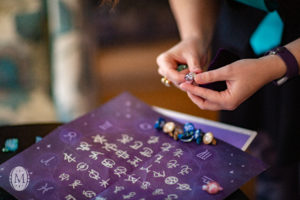
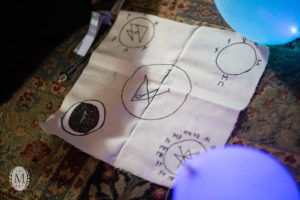
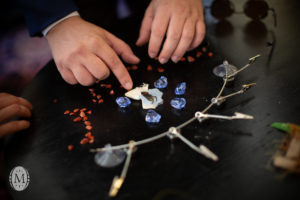
Hey there 🙂
Your wordpress site is very sleek – hope you don’t mind me asking what theme you’re using?
(and don’t mind if I steal it? :P)
I just launched my site –also built in wordpress like yours– but the theme slows (!) the site down quite
a bit.
In case you have a minute, you can find it by searching for “royal cbd” on Google (would appreciate any
feedback) – it’s still in the works.
Keep up the good work– and hope you all take care of yourself during the coronavirus scare!